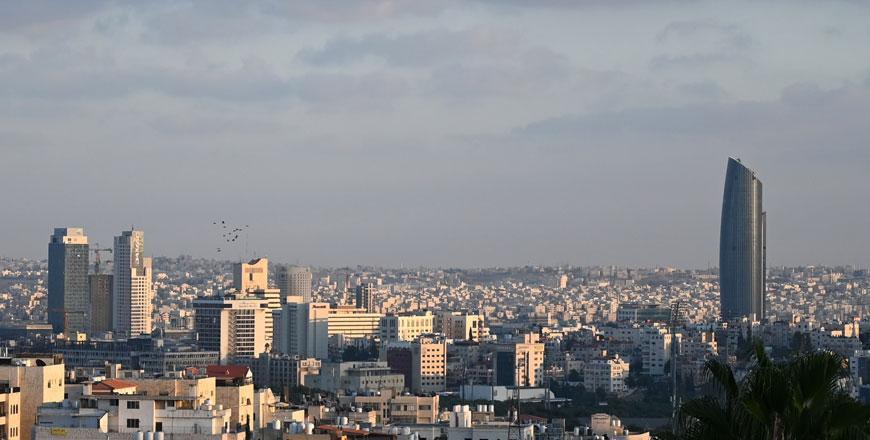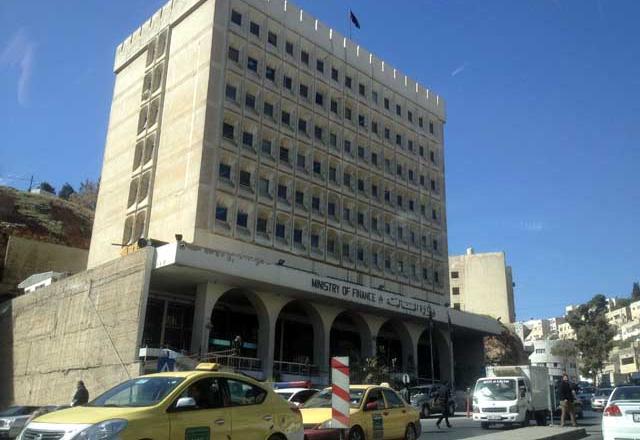You are here
Economists laud Jordan’s S&P rating, reaffirm need to tackle challenges
By Bahaa Al Deen Al Nawas - Sep 13,2020 - Last updated at Sep 13,2020

The latest Standard and Poor’s (S&P) Global Ratings report reaffirmed Jordan’s stability, maintaining it at B/B+ credit rating (JT file photo)
AMMAN — The latest Standard and Poor’s (S&P) Global Ratings report reaffirmed Jordan’s stability, maintaining it at B/B+ credit rating, but the rating remains conditional, as the Kingdom needs to tackle various issues, including its debt and its budget deficit, economist Wajdi Makhamreh said on Sunday.
In a phone interview, Makhamreh said that the latest rating can go down if the government does not take proper measures to improve the economy, and could go higher if foreign currency revenues go up, with the lowering of debt and better control on spending.
“The report is positive, generally speaking, but it is conditional as the government needs to do a lot of work, and COVID-19 hit to the economy has made the situation difficult,” Makhamreh said.
“The rating might go down next year because debt will probably increase, especially if the 2021 budget, which will be very different, is going to depend on more borrowing to fund the government’s spending and the budget deficit,” Makhamreh said.
He added that the government is committed not to increasing taxes. If this remains true, debt will increase in the upcoming 12 months and “this will negatively impact S&P’s foreign and local currency sovereign credit ratings on Jordan”.
If in the upcoming period, foreign currency reserves increase through the return of tourism or expatriate remittances, this could improve the rating, the economist said, adding that the suspension of tourism and the return of many expatriates were negative.
Nonetheless, the government can encourage returning expatriates to invest in certain projects, and if more support is garnered through grants through the Gulf Cooperation Council (GCC) states or foreign countries, the situation will improve, Makhamreh said.
The report estimated the Kingdom’s real gross domestic product (GDP) to contract by 5.5 per cent, attributing the estimation to the “collapse of the international tourism industry since March, weak global and domestic demand, and lower remittances from the GCC states, partly due to lower oil prices”, which it said would depress economic activity.
“We are affirming our ratings on Jordan, despite the COVID-19-related contraction of economic output and increasing public and external debt levels, because we expect Jordan will continue to benefit from access to domestic banks with excess liquidity and external sources of funding, primarily on concessional terms,” the agency said in the report.
Economist Mazen Marji said: “It is illogical to consider that any country’s economy this year is the same as last year, which is cause for doubting the accuracy of the report and its rating standards.”
The standards should have focused on economic conditions in regard to debt, unemployment, foreign investments and foreign currency reserves among others, Marji said.
The economist said that Moody’s, another global rating agency, had in July given Jordan a lower rating than S&P, noting that each agency has its own standards to focus on, and some will focus more on debt, which he said increased from around 96 per cent last year to 101 per cent this year.
“The government’s medium-term efforts to revive investment and create jobs while broadening the tax base could support economic growth prospects and gradually reduce fiscal pressures,” the report said, adding that the four-year International Monetary Fund’s Extended Fund Facility of $1.3 billion that was approved in March will provide a policy anchor to balance inclusive growth and debt sustainability through 2023.
The rating agency said it could lower the Kingdom’s rating if much higher debt accumulation by the central government or state-owned enterprises was projected, which could affect its view on the government’s institutional ability to maintain sustainable public finances.
“We could also lower the ratings if funding sources became strained, for example if currently strong bilateral and multilateral donor support were to diminish,” the report added.
However, S&P could raise the ratings if Jordan’s external imbalances “narrowed sharply and foreign investment were to rebound, boosting foreign exchange reserves”.
“A positive rating action would also hinge on a substantial reduction in net government debt levels and a notable improvement in growth prospects, spurred by government structural reforms, for example in the energy sector,” the report noted.
Related Articles
AMMAN — International credit rating agency Standard and Poor’s (S&P) Global Ratings on Friday affirmed its “B+/B” long-and short-term fo
Jordan has regained its stable credit rating from Standard and Poor's (S&P) almost three years after a downgrade to negative over concerns of economic and political problems caused by regional instability.
AMMAN — International credit rating agency Standard and Poor’s (S&P) has downgraded Jordan’s rating to B+, from BB-, citing poor perform


















